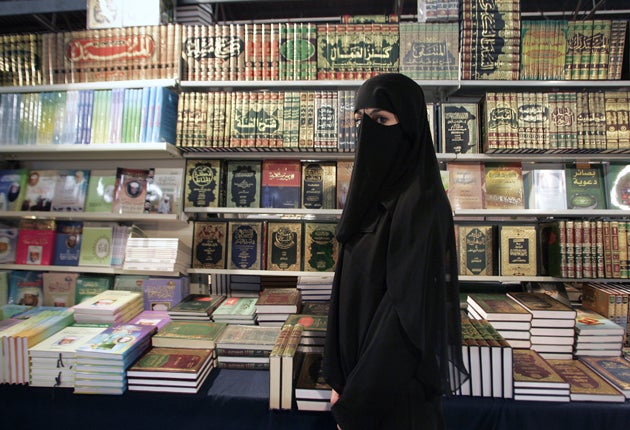French parliament set to approve veil ban

Your support helps us to tell the story
From reproductive rights to climate change to Big Tech, The Independent is on the ground when the story is developing. Whether it's investigating the financials of Elon Musk's pro-Trump PAC or producing our latest documentary, 'The A Word', which shines a light on the American women fighting for reproductive rights, we know how important it is to parse out the facts from the messaging.
At such a critical moment in US history, we need reporters on the ground. Your donation allows us to keep sending journalists to speak to both sides of the story.
The Independent is trusted by Americans across the entire political spectrum. And unlike many other quality news outlets, we choose not to lock Americans out of our reporting and analysis with paywalls. We believe quality journalism should be available to everyone, paid for by those who can afford it.
Your support makes all the difference.France's lower house of parliament appeared ready to approve a ban on burqa-like Islamic veils today, a move that is popular among French voters despite concerns from Muslim groups and human rights advocates.
The issue is potent in Europe: Several other countries have similar proposals in the works, including Belgium and Spain, and they are closely watching the bill's progress in France.
After Tuesday's vote, the ban on face-covering veils will go in September to the Senate, where it is also likely to pass. Its biggest hurdle will likely come after that, when France's constitutional watchdog scrutinizes it. Some legal scholars say there is a chance it could be deemed unconstitutional.
The main body representing French Muslims says face-covering veils are not required by Islam and not suitable in France, but it worries that the law will stigmatize Muslims in general.
France's has Europe's largest Muslim population, estimated to be about 5 million of the country's 64 million people. While ordinary headscarves are common, only about 1,900 women in France are believed to wear face-covering veils. Champions of the bill say they oppress women.
With the proposed ban, the government is also seeking to insist that integration is the only path for immigrant minorities. France has had difficulty integrating generations of immigrants and their children, as witnessed by weeks of rioting by youths, many of them minorities, in troubled neighborhoods in 2005.
At the National Assembly, the lower house, relatively few dissenters have spoken out about civil liberties or fears of fanning anti-Islam sentiment.
The niqab and burqa are generally seen here as a gateway to extremism and an attack on women's rights and secularism, a central value of modern-day France.
The full veil "is the banner of a sectarian ideology" and threatens "human dignity," the head of French women's rights group Ni Putes Ni Soumises, Sihem Habchi, wrote in an essay in Tuesday's Liberation daily.
Critics say the proposed ban is a cynical ploy by conservative French President Nicolas Sarkozy's government to attract far-right voters.
Discussions in France have dragged on for more than a year, since Sarkozy declared in June 2009 that the burqa is "not welcome" in France.
In March, France's highest administrative body, the Council of State, warned that the law could be found unconstitutional.
The legislation would forbid face-covering Muslim veils in all public places in France — even in the street. It calls for €150 fines or citizenship classes, or both.
The bill is also aimed at husbands and fathers — anyone convicted of forcing someone else to wear the garb risks a year of prison and a €30,000 fine, with both penalties doubled if the victim is a minor.
Officials have taken pains to craft language that does not single out Muslims. While the proposed legislation is colloquially referred to as the "anti-burqa law," it is officially called "the bill to forbid concealing one's face in public."
It refers neither to Islam nor to veils. Officials insist the law against face-covering is not discriminatory because it would apply to everyone, not just Muslims. Yet they cite a host of exceptions, including motorcycle helmets, or masks for health reasons, fencing, skiing or carnivals.
Anticipating a ban on the veils, an entrepreneur who tried to run for president in 2007, Rachid Nekkaz, is creating a fund to pay the fines of anyone caught wearing a niqab or burqa.
While he says he opposes the full veils, he says a ban would be anti-democratic, and he is creating the fund "so that my country is not the disgrace of the whole world."
In Cairo, Islamic scholar Abdelmotie Bayoumi said a French ban would not violate Islamic law, but would violate personal freedoms.
"The niqab has no strong legitimacy based on Quran or in examples from the Prophet's life that makes it a religious imposition on women. A Muslim woman wears the niqab not because of religious duty, but as a personal freedom," said Bayoumi, whose books include "Contemporary Testimonies," about the full-face veil.
Join our commenting forum
Join thought-provoking conversations, follow other Independent readers and see their replies
Comments